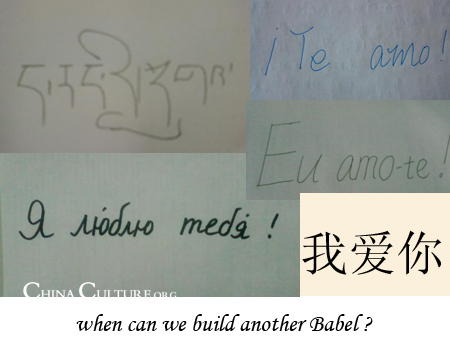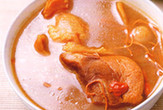Since the Chinese language, a branch of the Sino-Tibetan family, differs greatly from the Indo-European languages led by English, the Esperanto of our time in grammar and logic, problems may occur if the translator only has a passing acquaintance with both languages.
Therefore, one has to plumb the depths of the source language and target language before he or she can enter the world of translation. Any breakdown in the communication is disastrous. Truth may be distorted; information may get lost or misunderstood, thus limiting the prospects of those well-acclaimed Chinese books.
 |
Nowadays, translation theories of all descriptions run riot, but they are just talking in the abstract, though from different perspectives. The pressing task is to return to the basics and see more action on the ground.
Translation also cannot be done when isolated from the social context. This is the right case with literary translation. Apart from the language barriers, literary works (novels, poems, plays) concern themselves a great deal about social life, the local culture and economy in which they are set.
As China’s economy continues to dazzle the world, floods of new words continue to appear as a result of social changes. Those words, born on the Chinese soil, are rich in local character.
Fangnu, for example, is a word to describe the younger generation who have to pay a majority of their incomes every month for the mortgage. As housing prices show no sign of decreasing, they gradually become Mortgage Slaves, a word that must be given enough time to be understood by foreigners.
Since many commercially successful Chinese books reflect the changing scene of Chinese life, it becomes an even more difficult job to render them faithfully. Even worse is the fact that so many difficult dialects exist in China. Folk literary works usually capture the shouts and cries of the local community, and something is bound to get lost in the translation process due to the inimitably unique characteristics of those dialects.





Why not rent a boyfriend, or girlfriend to please parents during the Spring Festival?